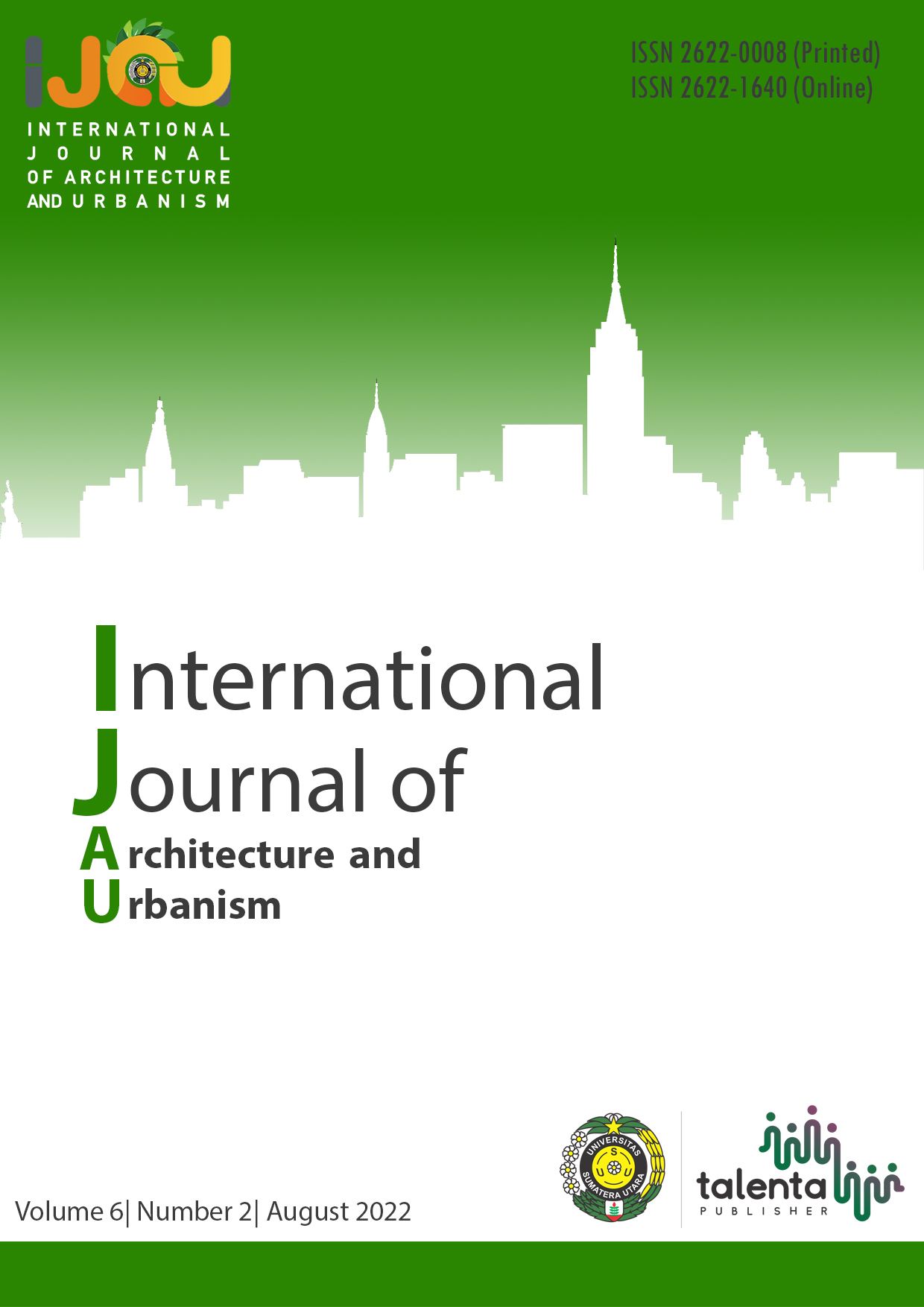Implications of Indoor Air Pollution in Business Buildings in Nigeria
DOI:
https://doi.org/10.32734/ijau.v6i2.9699Keywords:
air, buildings, human health, pollutionAbstract
Globally, the majority of individuals spend 90 percent of their daily routine time indoors. Outside air pollution adds to the toxins created in interior spaces owing to heating and cooling, which has a substantial impact on person healthiness (illness that results in mortality and morbidity) and productiveness. This study investigates the implications of air pollution on interior air quality in commercial buildings such as event centres in Kogi State, Nigeria. Descriptive research approach was used with a questionnaire administered to 120 participants chosen through a random sampling procedure in business buildings. Findings indicated that inadequate window and tiny door size, including absence of mechanical cooling devices linked favourably with higher temperature in the interior but negatively with its moistness. The results show that indoor air quality has negatively impacted on the workforce performance and productivity of the customers, and also on the efficiency of their activities in the event centres. Implication for practice is that designs of apertures should be large enough to allow for cross ventilation while mechanical cooling systems should be included in the design for optimal interior air quality. The study recommends synergistic interventions from academics, policymakers, and occupational practitioners to improve national standard and its implementation for the management and regulation of indoor air quality in inside settings in Nigeria
Downloads
Downloads
Published
How to Cite
Issue
Section
License
Copyright (c) 2022 International Journal of Architecture and Urbanism

This work is licensed under a Creative Commons Attribution-ShareAlike 4.0 International License.


.png)










